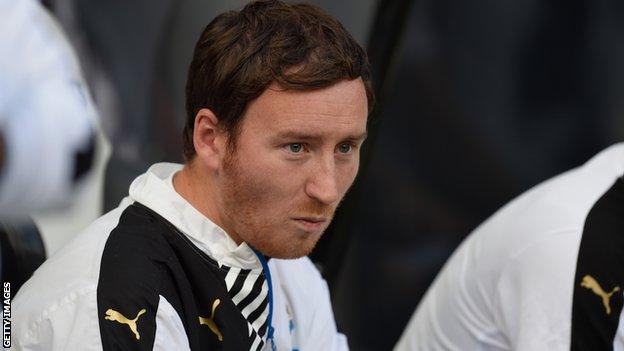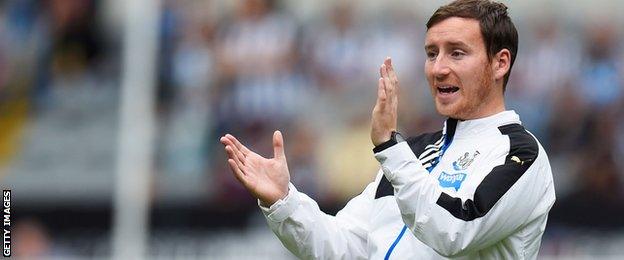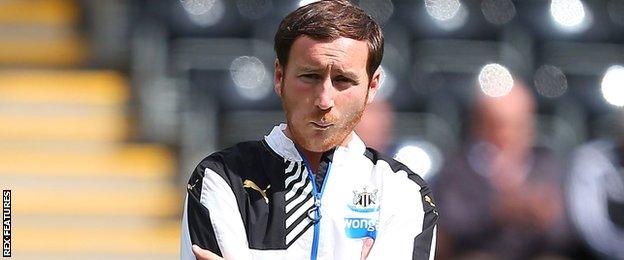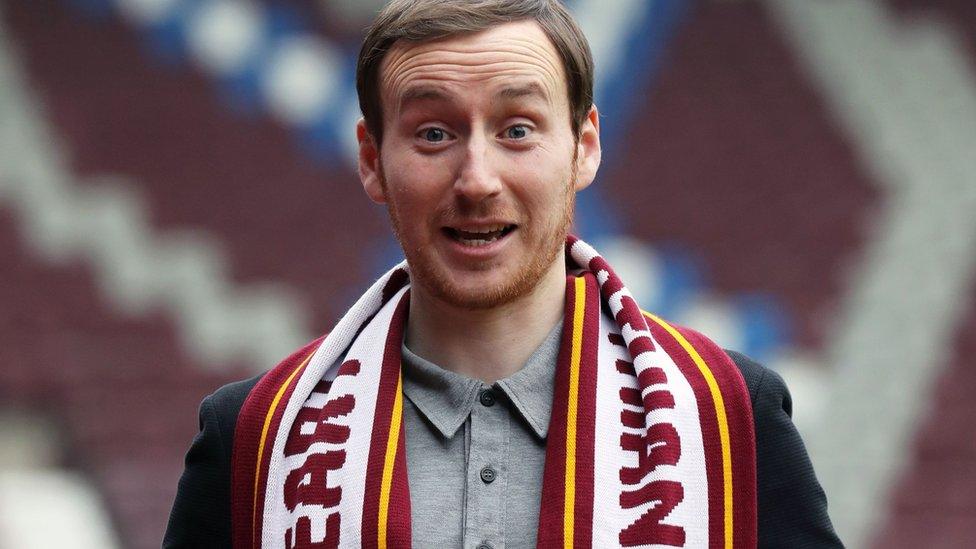Ian Cathro: who is the new Hearts head coach?
- Published

Ian Cathro has signed a three-and-a-half year deal at Tynecastle
In succeeding Robbie Neilson as Hearts head coach, Ian Cathro has returned to Scottish football after leaving in 2012 to pursue a coaching career.
Taking over at Tynecastle is the end of a long journey that began with coaching secondary school pupils in Dundee and took in two stops on the continent.
So what is Cathro's background?
He never played football at any significant level, but was drawn to coaching at an early age. By 23, he was coaching youth players at Tannadice, after Craig Levein was impressed with his work in developing the likes of Ryan Gauld and the Souttar brothers - John and Harry.
Cathro spent four years at United, and also worked for the Scottish Football Association's regional coaching set-up, before a chance encounter moved his career onto a different path. He met Nuno Espirito Santo while they were earning their coaching qualifications with the SFA at Largs, and Santo was impressed with the young Scot's work.
When Santo was appointed manager of Rio Ave, he asked Cathro to become assistant manager. Cathro spent two years coaching in Portugal before Santo was offered the manager's job at Valencia in 2014, and a year in La Liga followed before a return to the UK suited for personal and professional reasons.

By the age of 23, Ian Cathro was coaching Dundee United youth players like Ryan Gauld
Cathro has since been at Newcastle, as assistant to Steve McClaren then to Rafa Benitez, who was impressed enough with his work to ask him to stay on. Although Cathro never played at a high level, he believes his coaching work with international players in Portugal, Spain and England has brought some of the experience he missed out on directly.
What kind of person is he?
There has been a scepticism towards Cathro, particularly in Scotland. His career path is unconventional, and he has a deep well of self-belief. There is also, though, an inquisitive mind and an eagerness to learn and fill in the blanks of his knowledge and experience.
Cathro is intense, and wholly committed to his work - even visits of family and friends to Portugal and Spain were not allowed to impinge too much on his working life. He carefully measures every word, but that is so they deliver an impact. There is a warmth and humour, too, beneath the work personality.
He won't lead by presence, but by the worth of his work with players, and many of the youngsters he first coached in Dundee still keep in regular contact by text.
The scepticism has led to accusations of Cathro being aloof or introspective. He is, though, merely guarded and has little appetite for a high profile.
What kind of team will he send out?
During his youth coaching days, Cathro emphasised vision and technique. He wanted his players to be able to play the game expansively and creatively, but also with a fully rounded skill set.

Cathro joined the Newcastle staff in June 2015
The style of play he encountered in Portugal and Spain will not directly translate to Britain, but he will look to circulate possession, moving the ball from side to side to shift opposition defences out of alignment and attack the open spaces.
He is a contemporary coach, capable of the analytical breakdown of opposition sides but also, crucially, how to devise and coach a game plan to take advantage.
His ideal is to create a vibrant, attacking side that supporters are enthused by. The reality can be different, though, and the challenge for Cathro is to implement his ideals, but not be bound by them. Theory and reality do not always merge smoothly.
Coaching and management require different skills. He believes he is ready to make the move from one to the other, and now he has to prove it.
- Attribution
- Published9 December 2016
